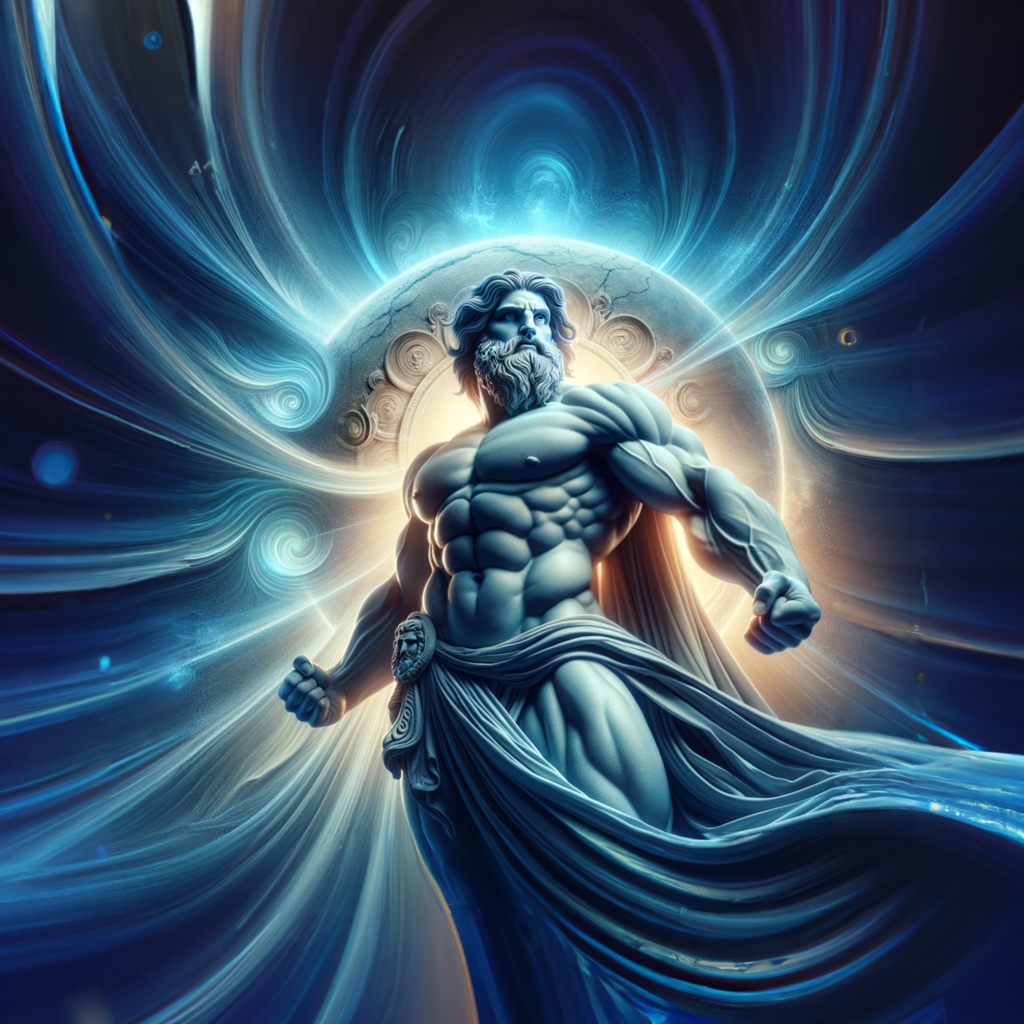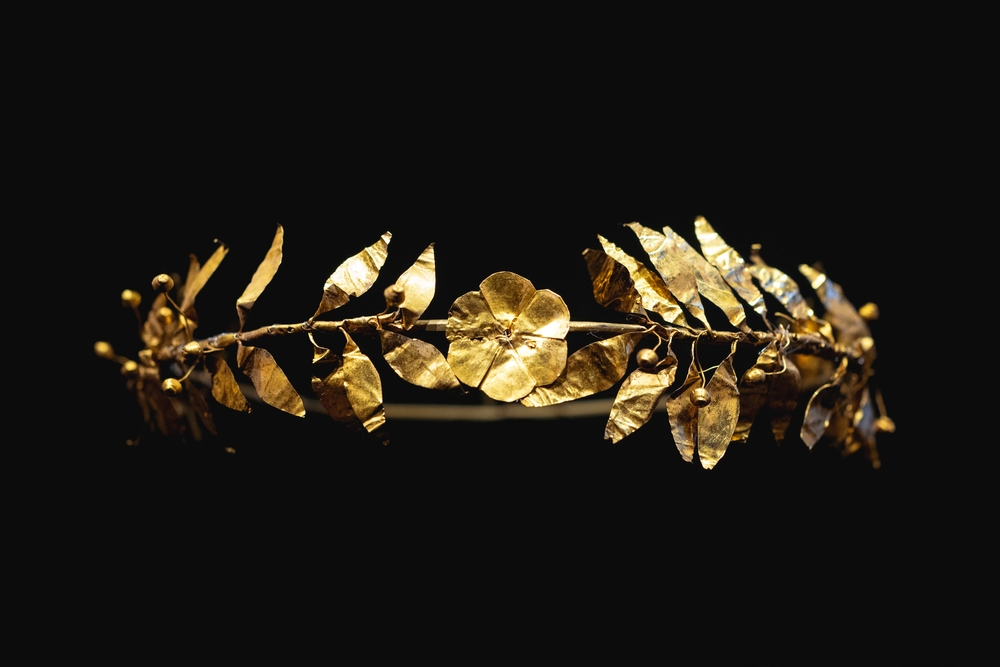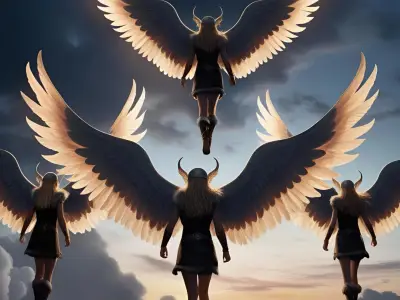Greek mythology is filled with larger-than-life heroes, tragic tales, and fascinating figures—some more well-known than others. While Hercules (or Heracles in Greek) is one of the most famous mythological figures, the story of his first wife, Megara, is often overlooked.
But who was Megara, really? Was she a goddess, a mortal princess, or something in between? What happened to her in Greek myth, and what symbols are associated with her? If you’re curious about Megara’s role in mythology, her relationship with Hercules, and how she has been interpreted over time, this guide will give you an engaging look at her story.
Jump to:
- Who Was Megara?
- Megara's Myths
- The Role of Megara in Greek Storytelling
- What Powers Did Megara Possess?
- Symbols Associated with Megara
- Why Is Megara Special?
- How Megara Compares to Other Women in Greek Mythology
- Did Ancient Greeks See Megara as a Tragic Heroine?
- Megara in Modern Culture
- Frequently Asked Questions About Megara
- Study Greek Mythology for £29
Recommended for you!
Best SellersWho Was Megara?
Megara was a mortal princess, not a goddess, despite what some modern interpretations might suggest. She was the daughter of King Creon of Thebes, a powerful ruler in Greek mythology. This made her a noblewoman, but not a divine being.
She is most famous for being the wife of Hercules, but their relationship was not as romantic as some modern retellings—such as Disney’s Hercules—might lead you to believe. In mythology, her marriage was more of a reward than a love story. After Hercules defended Thebes from invaders, King Creon offered Megara to him as a gesture of gratitude.
Though little is said about Megara’s personality in ancient myths, she is often depicted as loyal, dutiful, and tragic—a woman whose fate was tied to the misfortunes of her famous husband.
Megara's Myths

Megara’s story is intertwined with one of the darkest moments in Hercules’ life. According to Greek mythology, after their marriage, Megara and Hercules had several children—the exact number varies depending on the version of the myth.
However, tragedy soon followed. In a fit of divine madness, sent by the jealous goddess Hera, Hercules killed his family, including Megara and their children. The idea that a hero could destroy the very people he loved is one of the most tragic elements of his story.
This terrible act led Hercules to seek redemption, which eventually resulted in his famous Twelve Labours—a series of impossible tasks that helped him atone for his sins. Megara, unfortunately, does not feature much in Hercules' story after this event. Some versions of the myth suggest she was killed, while others imply she was given to another man after Hercules left.
The Role of Megara in Greek Storytelling
Megara’s role in mythology is not as developed as other female figures, such as Helen of Troy or Medea. Unlike these well-known women, who had major narrative arcs, Megara exists primarily as a figure in Hercules’ story.
She is significant, however, because her tragedy serves as a turning point in Hercules' life. Before her death (or separation, in some versions), Hercules is a celebrated hero, but after he kills his family, he embarks on a path of redemption and suffering.
In this way, Megara plays a role similar to many women in Greek tragedy—not a hero herself, but a catalyst for the hero’s transformation. This pattern is seen in other myths, where male heroes often gain motivation through loss or suffering.
What Powers Did Megara Possess?

Unlike Hercules, Megara did not have supernatural powers. She was a mortal woman and did not exhibit the strength, endurance, or divine abilities of her husband. However, she possessed qualities that were highly valued in ancient Greece, including:
- Wisdom – As the daughter of a king, Megara likely had a strong understanding of politics and leadership.
- Loyalty – She remained with Hercules despite the dangers that surrounded him.
- Tragic Endurance – Megara is often viewed as a tragic figure who suffered due to forces beyond her control.
While she was not a goddess or a warrior, her story holds power in its own right. She represents the consequences of divine interference in mortal lives and the often-overlooked struggles of women in mythology.
Symbols Associated with Megara

Unlike some mythological figures, Megara does not have a well-documented set of symbols. However, based on her story, a few possible symbolic connections can be made:
- The Laurel Wreath – A common Greek symbol of honour, which could represent Megara’s noble birth and status as a princess.
- Chains or Broken Bonds – These could symbolise her tragic fate, being bound to Hercules and then suffering as a result of his madness.
- The Colour Purple – Often associated with nobility and royalty, purple could be a fitting colour for Megara as a princess of Thebes.
Why Is Megara Special?
Megara is special because she represents a different kind of tragedy in Greek mythology. Unlike other female figures who play passive roles, Megara was a noblewoman caught in the wake of Hercules’ downfall. Her story is not one of heroism or divine intervention but rather the harsh realities of being linked to a larger-than-life figure.
Additionally, Megara’s character has evolved over time, particularly in modern culture, where she is often portrayed as independent and strong-willed—a shift from the traditional mythological version of her character.
How Megara Compares to Other Women in Greek Mythology
To put Megara’s story into context, it’s helpful to compare her to other women in Greek myth.
| Character | Role in Mythology | Similarities to Megara |
| Deianira (Hercules’ later wife) | Also suffered due to Hercules; accidentally caused his death. | Another tragic wife of Hercules, caught in his violent fate. |
| Andromache (Wife of Hector) | Lost her family due to war and fate. | Another princess who lost her family due to forces beyond her control. |
| Medea (Wife of Jason) | Killed her children after Jason betrayed her. | Medea chooses revenge, whereas Megara is an innocent victim. |
| Penelope (Wife of Odysseus) | Remained loyal despite suffering. | Penelope survives her struggles, while Megara does not. |
This comparison helps highlight Megara’s uniqueness. She is neither a vengeful figure nor a victorious survivor—she is a tragic victim of forces beyond her control.
Did Ancient Greeks See Megara as a Tragic Heroine?

Unlike figures such as Antigone or Iphigenia, who are central tragic heroines in Greek literature, Megara does not get her own story. However, later interpretations, including some plays and retellings, began to sympathise with her fate.
Some scholars suggest that Greek audiences may have viewed Megara as a symbol of innocence destroyed by divine will. Women in Greek tragedy were often caught between fate, the gods, and the actions of powerful men, and Megara’s story follows that pattern.
Megara in Modern Culture
In recent years, Megara has gained recognition through popular culture, most notably in Disney’s 1997 animated film Hercules. In this version, she is depicted as a cunning and sarcastic character, working for Hades before falling in love with Hercules.
This version of Megara is very different from the original mythological figure. Instead of being a victim of tragedy, she is a strong-willed woman with agency, making her an empowering figure for modern audiences.
Recommended for you!
Best SellersFrequently Asked Questions About Megara
How do you pronounce Megara?
The name Megara is pronounced "MEG-uh-ruh" in English. In Greek, it would be closer to "MEH-gah-rah" with a slightly rolled 'r'.
What happened to Megara after Hercules’ madness?
The fate of Megara varies depending on the version of the myth. In some accounts, she is killed by Hercules during his fit of madness. In others, she survives and is later married off to another man after Hercules leaves Thebes. Some versions suggest she retreats from public life entirely.
Did Megara betray Hercules?
Megara never betrayed Hercules in Greek mythology. This idea comes mainly from the Disney film Hercules, where she initially works for Hades. In actual mythology, Megara was a loyal and dutiful wife, and her tragedy was due to Hercules’ divine punishment rather than any actions of her own.
What god did Megara worship?
What does Megara punish?
Megara herself does not punish anyone in Greek mythology. However, in modern interpretations, she is sometimes seen as a symbol of the consequences of unchecked power or divine intervention, particularly in how the gods manipulated her fate.
Is Megara considered a feminist character?
In original Greek mythology, Megara does not have much agency, making her a tragic figure rather than a feminist icon. However, in modern culture—especially in Disney’s Hercules—she is often portrayed as independent, sharp-witted, and strong-willed, which resonates with feminist ideals.
Was Megara the only wife of Hercules?
Megara was one of Hercules’ wives, but she was not his only one. After her tragic fate, Hercules went on to have multiple wives, including Deianira and Hebe, the latter being his divine wife after he ascended to Olympus.
Why is Megara important in Greek mythology?
Megara’s story is important because it highlights the darker aspects of Greek mythology, particularly the consequences of divine interference. She serves as a symbol of loyalty and tragedy, showing how even those closest to great heroes were not safe from fate’s cruelty.
Study Greek Mythology for £29
Megara’s myths offer a glimpse into the fascinating complexities of Greek mythology. If you’re captivated by these ancient stories and their modern interpretations, deepen your understanding with our Greek Mythology Diploma Course at Centre of Excellence. This fascinating course offers an in-depth exploration of the myths, legends, and cultural significance of ancient Greece. By enrolling today, you can enjoy a discounted price of just £29.













